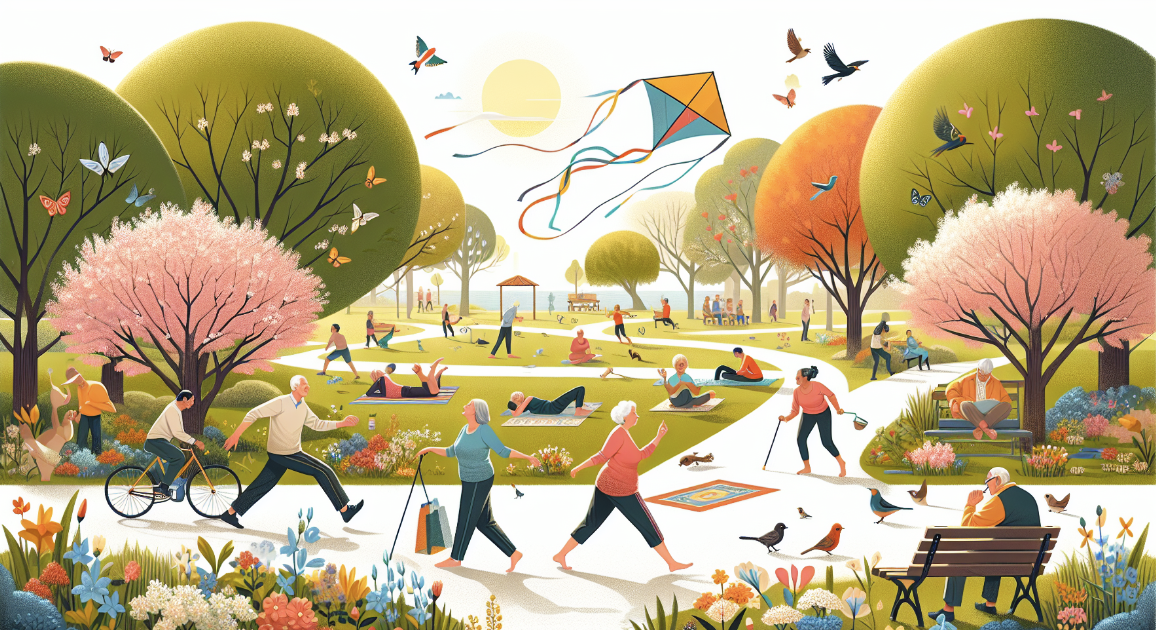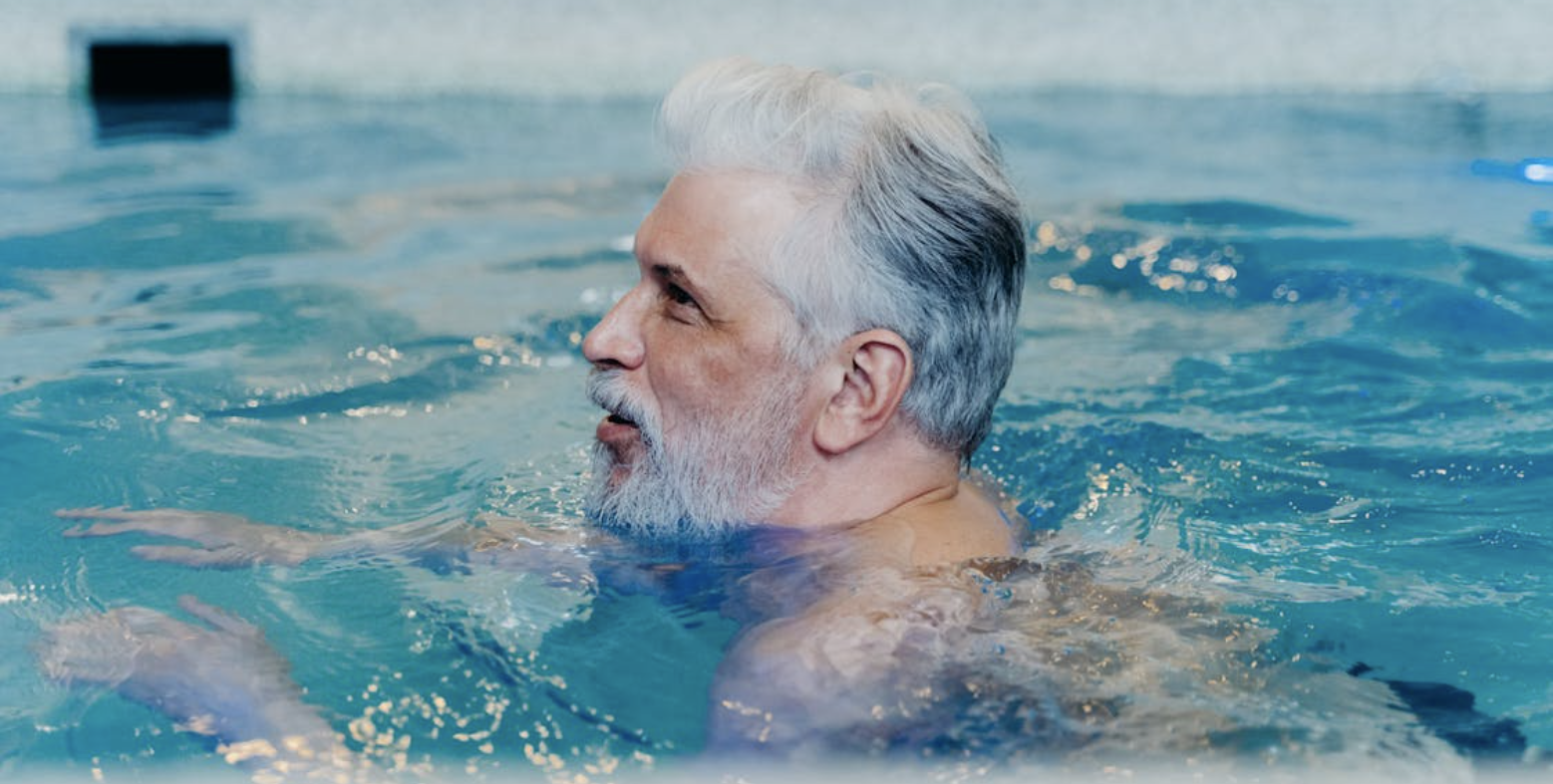Speak to a local care advisor at Assisted Living Locators by calling (888)-267-4741.
Learn about Assisted Living, Senior Living, Memory Care, and In-home care options.
Venturing outdoors offers substantial health benefits, particularly for seniors. Engaging in senior outdoor activities not only promotes physical well-being through exercise and the much-needed vitamin D from sunlight but also enhances emotional and mental health. These activities, ranging from walking and gardening to outdoor yoga and pickleball, provide balanced, flexible exercise options that are crucial for maintaining health in later years. In addition, these experiences offer fresh air and opportunities to connect with nature, further boosting overall wellness.
The variety of available outdoor activities for seniors ensures that there are options for every interest and fitness level. Whether it’s leisurely walks, bird watching, nature photography, or more social endeavors like picnics and outdoor craft shows, the benefits of integrating outdoor recreation into daily routines are immense. This article will explore the multifaceted advantages of outdoor activities, from improving balance and flexibility to fostering socializing and community engagement, all while ensuring safety and adaptability for seniors.
The Physical Benefits of Outdoor Activities for Seniors
Living near green spaces significantly impacts seniors’ health, notably reducing mortality rates from cancer, lung disease, and kidney disease. The infusion of fresh air and engagement in outdoor activities like walking, gardening, and outdoor yoga can act as a preventive measure against stroke, heart disease, high cholesterol, and certain types of cancer. Moreover, these activities contribute to quicker recovery times from illnesses and surgeries, reducing the dependency on pain medications and lowering the risk of complications.
- Vitamin D and Disease Prevention
- 15 minutes of sun exposure provides the daily recommended dose of Vitamin D, crucial for reducing risks associated with rheumatoid arthritis, multiple sclerosis, and muscle pain.
- Regular outdoor activities decrease the likelihood of type 2 diabetes, cardiovascular diseases, and maintain lower cortisol levels, promoting a healthier heart and reducing stress.
- Physical Health and Mobility
- Activities such as tai chi and gardening not only improve mental well-being but also enhance physical fitness, aiding in weight control, and cognitive function.
- Engaging in low-impact exercises like walking or water aerobics improves cardiovascular health and mobility, making daily activities easier and promoting independence among seniors.
The integration of outdoor activities into a senior’s lifestyle offers a comprehensive approach to maintaining and improving overall health. Through the careful selection of activities suited to their fitness level, seniors can enjoy the myriad benefits of outdoor exposure, from enhanced vitamin D intake to improved physical mobility and reduced disease risk.
Mental and Emotional Wellness through Nature
The connection between mental and emotional wellness and nature is profound and multifaceted, offering seniors an invaluable resource for improving their quality of life. Here’s a closer look at how nature impacts mental and emotional health:
- Decreased Depression and Anxiety: Research indicates that spending time in natural environments can significantly lower levels of depression and anxiety while fostering feelings of happiness. This effect is partly due to the calming influence of nature, which can reduce stress levels and enhance mood.
- Cognitive and Emotional Benefits:
- Sunlight and Vitamin D: Exposure to sunlight boosts mood and cognition by facilitating vitamin D absorption, essential for brain health.
- Memory and Creativity: Activities in green spaces have been shown to improve memory function and spur creativity, making outdoor pursuits like gardening, bird watching, and nature photography not only enjoyable but also mentally stimulating.
- Social Connections: Engaging in outdoor activities provides opportunities for social interaction, linked to better emotional health and a higher quality of life.
- Impact of Nature on Mental Fatigue:
- Boosting Mental Energy: Nature acts as a balm for mental fatigue, rejuvenating the mind and increasing energy levels.
- Enhancing Focus: Time spent outdoors has been shown to improve focus, even among individuals with attention-deficit/hyperactivity disorder (ADHD), suggesting the wide-reaching benefits of natural environments on mental clarity.
By integrating outdoor activities into their routines, seniors can tap into the therapeutic effects of nature, promoting mental and emotional well-being alongside physical health.
Socializing and Community Engagement Outdoors
Engaging in senior outdoor activities offers a multitude of socialization opportunities, fostering a sense of community and enhancing emotional well-being. These activities range from leisurely pursuits like gardening and attending outdoor concerts to more structured group exercises, all of which contribute significantly to a senior’s quality of life.
- Community Engagement and Social Activities:
- Community Events and Festivals: Serve as platforms for seniors to connect, share experiences, and build lasting relationships.
- Outdoor Group Activities: Walking clubs, community gardening, and outdoor yoga classes encourage camaraderie and physical wellness.
- Cultural Activities: Attending outdoor theater performances or music events enriches the cultural experience while promoting social interaction.
- Benefits of Social Connections:
- Enhanced Mental and Physical Health: Regular interaction can lead to healthier lifestyles, quicker recovery from injuries, and a reduction in chronic pain.
- Combat Loneliness: Dedicated outdoor spaces for eating, meeting, or simply enjoying nature help mitigate feelings of loneliness and isolation.
- Adaptable Activities for Social Engagement:
- Gardening: Options like raised beds and container gardening reduce physical strain and encourage socializing.
- Exercise Groups: Outdoor exercise groups offer a blend of health benefits and social interaction in a welcoming environment.
- Craft Shows and Art Classes: Participating in or visiting outdoor craft shows allows seniors to express creativity and connect with peers.
Adaptable Outdoor Activities for Any Fitness Level
Adaptable outdoor activities for seniors are designed to accommodate various fitness levels, ensuring everyone can enjoy the benefits of fresh air and physical activity. These activities can be tailored to individual needs, promoting health without overexertion.
- Gardening & Horticultural Therapy:
- Aim for three 15-30-minute sessions per week. Programs like Kensington Park’s focus on the therapeutic aspects, enhancing mental and physical well-being.
- Gardening can be adapted to individual abilities, utilizing raised beds or container gardening to reduce strain.
- Exercise & Mobility:
- Tai Chi: Start with 10 minutes, three to five times a week. This gentle exercise improves balance and flexibility.
- Water Aerobics: Aim for one to three 30-minute sessions weekly at local community centers, focusing on joint health and flexibility.
- Walking: Choose well-maintained trails and aim for 15-30 minutes on varied surfaces 2-3 times a week, using walking sticks for balance.
- Social & Creative Engagement:
- Craft Shows and Community Events: Engage in outdoor craft shows and attend community events for social interaction and cultural enrichment.
- Fruit Picking: Look for senior-friendly orchards for an enjoyable, low-impact activity, ensuring easy access and peaceful walking paths.
These structured yet flexible activities encourage seniors to maintain an active lifestyle, cater to different mobility levels, and offer avenues for socializing and enjoying the outdoors.
Safety Tips for Outdoor Activities
Safety is paramount when seniors engage in outdoor activities to ensure a pleasant and risk-free experience. Adhering to the following guidelines can significantly enhance safety:
Preparation and Visibility:
- Always carry ID with emergency contact information and a cell phone for emergencies.
- Inform someone about your plans and estimated return time.
- Wear light or brightly colored clothing during the day and reflective material at night for visibility.
- Use a flashlight at night and walk during daylight hours in rural areas.
Choosing the Right Environment:
- Opt for well-lit areas with people around, sticking to well-used, safe routes.
- Look for smooth, stable surfaces to walk on and cross at designated crosswalks or intersections, obeying traffic signals.
Appropriate Attire and Equipment:
- Wear sturdy, appropriate shoes and dress comfortably in loose-fitting clothing suitable for the weather.
- In hot weather, stay hydrated and wear sunblock with at least 30 SPF. For cold weather, dress in layers and be aware of snow and icy sidewalks.
These measures, coupled with staying alert and paying attention to the path, significantly reduce risks, making outdoor activities more enjoyable and safe for seniors.
Conclusion
Venturing outdoors has been vividly illustrated throughout this article as not just beneficial but essential for seniors seeking to enhance their physical, mental, and emotional well-being. From the soothing embrace of green spaces and the array of adaptable activities suited to varying fitness levels, to the profound social engagement opportunities, the integration of outdoor activities into daily routines emerges as a pivotal strategy for aging healthily and happily. These endeavors not only contribute to maintaining independence and mobility but also play a crucial role in disease prevention and mental health, embodying a holistic approach to senior wellness.
As we wrap up, it’s clear that the simple act of stepping outside holds the power to transform. The myriad benefits explored—ranging from increased vitamin D intake and improved physical mobility to enhanced emotional well-being and enriched social connections—underscore the imperative of incorporating outdoor activities into the lives of seniors. Encouraging further exploration and consistent engagement with nature can serve as a cornerstone for thriving in later years, providing a compelling invitation to embrace the outdoors with enthusiasm and care.
FAQs
What kinds of outdoor activities are suitable for seniors?
Seniors can engage in a variety of recreational activities outdoors, such as walking, brisk walking, jogging, practicing yoga, and swimming. For those who enjoy sports, options include playing badminton, tennis, croquet, Frisbee, lawn bowling, and indoor bowling among other sports.
How do outdoor activities benefit physical health?
Engaging in outdoor activities offers numerous physical health benefits. These include enhanced cardiovascular health, as spending time in nature has been proven to lower blood pressure, diminish the risk of heart disease, and bolster overall cardiovascular health.
Why should older adults prioritize outdoor activities?
Outdoor activities are particularly important for older adults because they bolster the immune system and increase vitamin D levels, which tend to be lower in seniors. Adequate vitamin D levels are crucial for mitigating muscle and bone pain, reducing inflammation, and lowering the risk of conditions such as rheumatoid arthritis, osteoporosis, heart disease, and various types of cancer.
What is the most favored outdoor activity?
Running, jogging, or trail-running stands out as the most favored outdoor activity among people.












